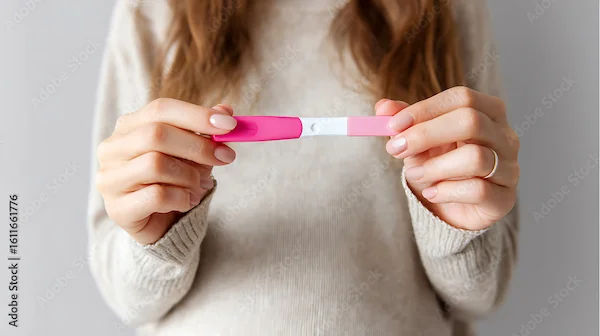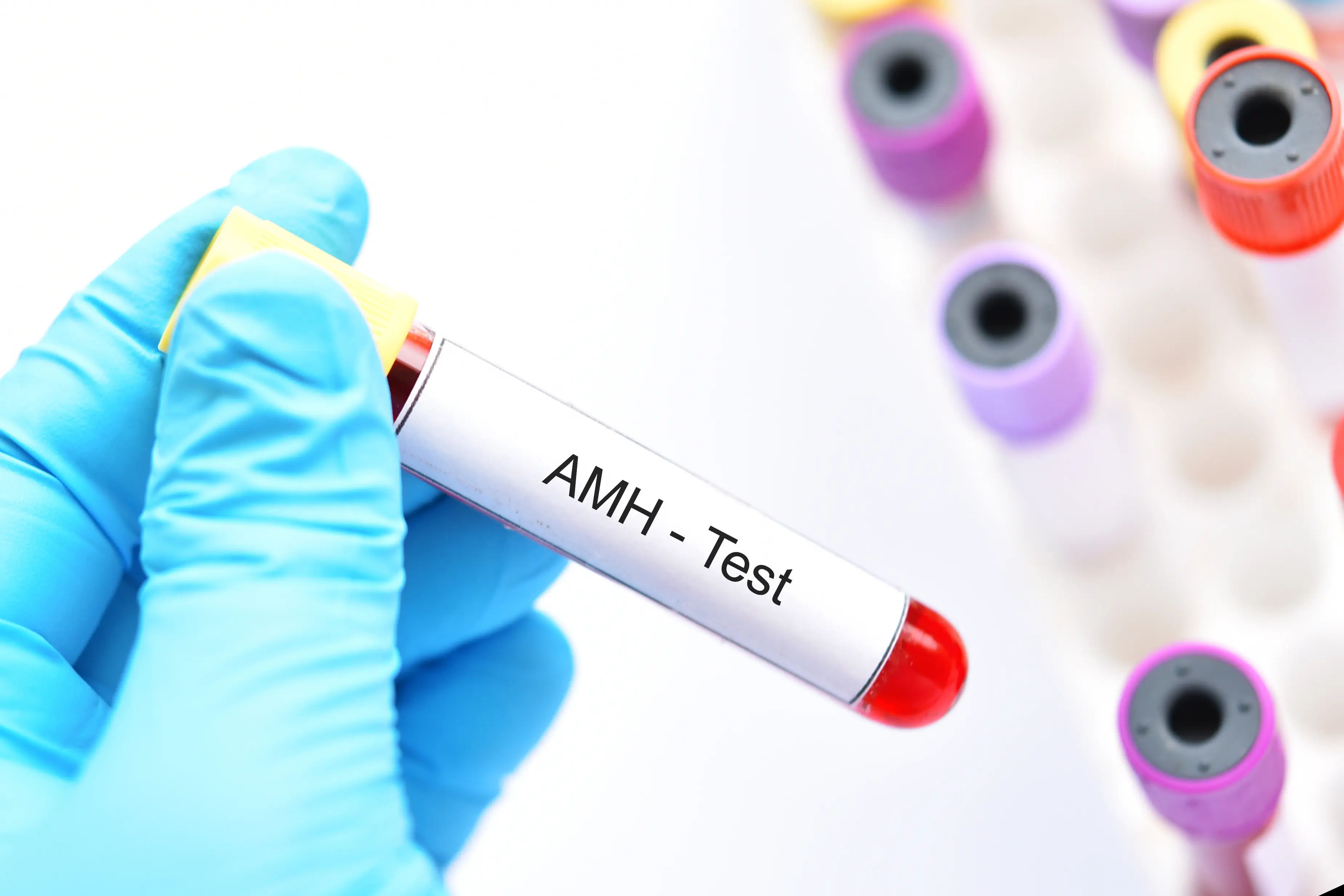Understanding Fertility: Your Guide to Conception and Health
Know about the fertility, what it is, the fertile window time, ovulation for conception, key factors influencing fertility and lifestyle changes to enhance fertility.

_0.webp?tr=q-80,f-webp,w-350,dpr-2,c-at_max 700w)
Introduction
Fertility is a fundamental aspect of human health, yet it’s often something we don't think about until we're ready to start a family. Understanding fertility goes beyond simply trying to conceive; it's about comprehending the intricate dance of biology, timing, and health that makes creation possible. Whether you're actively planning for a baby or just curious about your reproductive health, this knowledge is empowering. This comprehensive guide will demystify the key concepts, from defining basic terms and identifying your fertile window to exploring the factors that influence your chances and the steps you can take to optimise your fertility.
What Exactly is Fertility? More Than Just Getting Pregnant
At its core, fertility is the natural capability to conceive a child. It's not a single switch but a complex system involving both partners. Often, the focus is solely on female fertility, but male factors contribute to approximately 40-50% of all infertility cases. Understanding both sides is crucial for a complete picture.
Consult a Gynaecologist for Personalised Advice
Female Fertility: The Role of Ovaries and Eggs
Female fertility is primarily governed by the ovaries, which store a finite number of eggs. Each month, during the menstrual cycle, hormonal signals trigger the ovaries to mature and release an egg (ovulation). For conception to occur, a healthy egg must be released, travel through the fallopian tube, and be successfully fertilised by a sperm cell. The health and quantity of a woman's eggs, known as her ovarian reserve, naturally decline with age, which is the most significant factor affecting female fertility.
Male Fertility: The Importance of Sperm Health
Male fertility hinges on the production of healthy sperm. This involves three key parameters: sperm count (the number of sperm), sperm motility (their ability to swim properly), and sperm morphology (their shape and size). Issues with any of these factors can make it more difficult to achieve pregnancy. Unlike women, men produce new sperm continuously, but their quality can also be affected by age, lifestyle, and health conditions.
The Fertile Window: Timing is Everything
Conception is all about timing. A woman is only able to get pregnant during a specific few days each menstrual cycle, known as the "fertile window." This window includes the 5 days before ovulation and the day of ovulation itself. Sperm can survive inside the female reproductive tract for up to 5 days, but an egg is only viable for about 12-24 hours after being released.
Understanding Your Menstrual Cycle and Ovulation
The average menstrual cycle is 28 days, counting from the first day of one period to the first day of the next. Ovulation typically occurs around day 14. However, cycles can vary greatly. Tracking your cycle is the first step to predicting ovulation. The cycle is regulated by hormones like estrogen (which thickens the uterine lining) and luteinizing hormone (LH), which surges to trigger the release of the egg.
How to Track Ovulation for the Best Chance of Conception
Knowing when you ovulate dramatically increases your chances of getting pregnant faster. Here are the most common methods:
Method 1:
Calendar Tracking: Charting your cycle length over several months can help estimate your ovulation day. Apps can simplify this process.
Method 2:
Basal Body Temperature (BBT): Your resting body temperature slightly rises (about 0.5°F) after ovulation and stays elevated. Tracking BBT every morning can confirm ovulation has occurred.
Method 3:
Ovulation Predictor Kits (OPKs): These urine tests detect the surge in LH that happens 24-36 hours before ovulation, giving you a heads-up.
Method 4:
Cervical Mucus Changes: Around ovulation, cervical mucus becomes clear, stretchy, and slippery—often compared to raw egg whites—to help sperm travel to the egg.
Key Factors That Influence Your Fertility
A multitude of factors can impact reproductive health for both men and women. Some are within your control, while others are not.
The Impact of Age on Fertility (Female and Male)
Age is the most powerful factor. A woman's egg quality and quantity begin a significant decline in her mid-30s, with a more rapid decline after 37. By age 40, the chances of conceiving naturally each month are less than 5%. While the change is more gradual for men, advanced paternal age (over 40) can be associated with a higher risk of certain genetic conditions and slightly reduced sperm quality.
Lifestyle and Fertility: Diet, Exercise, and Habits
Your daily choices play a massive role. For both partners:
- Weight: Being significantly underweight or overweight can disrupt hormonal balance.
- Diet: A Mediterranean-style diet rich in antioxidants, healthy fats, and whole grains is linked to better fertility outcomes.
- Exercise: Moderate exercise is beneficial, but excessive, intense exercise can hinder ovulation.
- Smoking & Alcohol: Tobacco dramatically accelerates egg loss and damages sperm. Heavy alcohol use can decrease fertility.
- Stress: High levels of chronic stress can interfere with the hormones needed for ovulation and sperm production.
Underlying Medical Conditions That Can Affect Conception
Certain health issues can create barriers to conception. If you have concerns about any of these, it’s important to consult a doctor online with Apollo24|7 for a professional evaluation.
Common Female Conditions: PCOS, Endometriosis, Tubal Factors
- PCOS (Polycystic Ovary Syndrome): A hormonal disorder that can prevent regular ovulation.
Endometriosis: When tissue similar to the uterine lining grows outside the uterus, it can cause inflammation and scar tissue that blocks the fallopian tubes. - Tubal Factors: Blocked or damaged fallopian tubes prevent the egg and sperm from meeting.
Common Male Conditions: Low Sperm Count, Varicocele
* Low Sperm Count/Oligospermia: A lower-than-normal number of sperm in the ejaculate.
* Varicocele: Enlarged veins in the scrotum that can overheat and reduce sperm quality.
When to Consider a Fertility Evaluation?
Knowing when to seek help can save valuable time and emotional energy.
Recommended Timelines for Seeking Help
The general guideline is to see a specialist if you haven't conceived after:
- 1 year of unprotected sex if the woman is under 35
- 6 months if the woman is 35 or older.
- You should seek help immediately if you have known irregular periods, a history of pelvic disease, or prior cancer treatment.
What to Expect During Fertility Testing
A fertility evaluation is a team effort. It typically involves:
- For her: Blood tests to check hormone levels (e.g., on day 3 of the cycle), an ultrasound to examine the ovaries and uterus, and an HSG X-ray to check if the fallopian tubes are open. Apollo24|7 offers convenient home collection for tests like AMH (Anti-Müllerian Hormone), which can give insight into ovarian reserve.
- For him: A semen analysis to evaluate sperm count, motility, and morphology.
Proactive Steps to Boost Your Fertility Naturally
While not all factors are controllable, adopting a healthy lifestyle is one of the best things you can do.
Preconception Health: A Checklist for Both Partners
It includes:
- Start taking a prenatal vitamin with at least 400mcg of folic acid 3 months before trying to conceive.
- Achieve a healthy weight through a balanced diet and exercise.
- Quit smoking and limit alcohol and caffeine.
- Manage stress through yoga, meditation, or therapy.
The Role of Nutrition and Key Supplements
A fertility diet focuses on whole foods. Key nutrients include:
- Antioxidants (Vitamins C & E): Protect sperm and eggs from cellular damage.
- Omega-3 Fatty Acids: Support hormonal function.
- Zinc: Crucial for sperm production and ovulation.
- CoQ10: An antioxidant that may help improve egg quality and sperm health. Always discuss supplements with a doctor before starting.
Exploring Fertility Treatment Options
If natural conception isn't successful, modern medicine offers several paths forward.
From IUI to IVF: An Overview of Assisted Reproduction
- IUI (Intrauterine Insemination): Washed, concentrated sperm are placed directly into the uterus around the time of ovulation, bypassing the cervix.
- IVF (In Vitro Fertilisation): Eggs are retrieved from the ovaries and fertilised with sperm in a lab. The resulting embryos are grown for a few days before one or more are transferred into the uterus.
Coping with the Emotional Journey of Fertility Treatments
The fertility journey can be emotionally taxing. Feelings of stress, anxiety, and isolation are common. Seeking support from a therapist specialising in infertility, joining a support group, and open communication with your partner are vital for navigating this challenging process.
Conclusion
Understanding fertility is the first step toward taking control of your reproductive health. It's a journey that blends science, timing, and overall well-being. Remember that while the path to parenthood can sometimes be straightforward, it can also present challenges. The most important tools you have are knowledge and proactive care. By learning about your body, making healthy lifestyle choices, and knowing when to seek professional guidance, you are empowering yourself to navigate this journey with confidence.
Consult a Gynaecologist for Personalised Advice
Consult a Gynaecologist for Personalised Advice

Dr. Vineet Mishra
Infertility Specialist
36 Years • MD, Phd, DSc
Ahmedabad
Apollo Hospitals - Gandhinagar, Ahmedabad, Ahmedabad

Dr Bhawna Garg
Gynaecological Oncologist
26 Years • MBBS, MS, (PGI MS ROHTAK) FELLOWSHIP GYNECOLOGY ONCOLOGY, (CANCER INSTITUTE CHENNAI)
Delhi
Apollo Hospitals Indraprastha, Delhi

Dr. Saheli Kapat
Obstetrician and Gynaecologist
11 Years • MBBS, DNB Obstetrics & Gynaecology,FMAS(Fellowship in Minimal access surgery)
Kolkata
Dr. Saheli Kapat's Clinic, Kolkata

Dr Millie Dasgupta
Obstetrician and Gynaecologist
10 Years • MBBS,DNB (Obst. & Gynae.)
Kolkata
Dr. Millie Dasgupta's Clinic, Kolkata
(25+ Patients)
Kavitha V Reddy
Obstetrician and Gynaecologist
20 Years • MBBS, DGO
Bengaluru
Apollo Cradle and Childrens Hospital, Bengaluru
Consult a Gynaecologist for Personalised Advice

Dr. Vineet Mishra
Infertility Specialist
36 Years • MD, Phd, DSc
Ahmedabad
Apollo Hospitals - Gandhinagar, Ahmedabad, Ahmedabad

Dr Bhawna Garg
Gynaecological Oncologist
26 Years • MBBS, MS, (PGI MS ROHTAK) FELLOWSHIP GYNECOLOGY ONCOLOGY, (CANCER INSTITUTE CHENNAI)
Delhi
Apollo Hospitals Indraprastha, Delhi

Dr. Saheli Kapat
Obstetrician and Gynaecologist
11 Years • MBBS, DNB Obstetrics & Gynaecology,FMAS(Fellowship in Minimal access surgery)
Kolkata
Dr. Saheli Kapat's Clinic, Kolkata

Dr Millie Dasgupta
Obstetrician and Gynaecologist
10 Years • MBBS,DNB (Obst. & Gynae.)
Kolkata
Dr. Millie Dasgupta's Clinic, Kolkata
(25+ Patients)
Kavitha V Reddy
Obstetrician and Gynaecologist
20 Years • MBBS, DGO
Bengaluru
Apollo Cradle and Childrens Hospital, Bengaluru
More articles from Fertility
Frequently Asked Questions
What are the early signs of infertility?
For women, the most common red flag is irregular or absent periods. For men, there are often no obvious symptoms, which is why a semen analysis is a critical part of any fertility workup. Painful periods or a history of miscarriages can also be indicators.
How can I improve my egg quality naturally?
While you can't create more eggs, you can support their health. Focus on a diet rich in antioxidants (berries, nuts, leafy greens), take CoQ10 supplements (after consulting a doctor), maintain a healthy weight, and avoid smoking and excessive alcohol.
Does stress cause infertility?
While everyday stress doesn't cause infertility, severe chronic stress can disrupt the hormonal signals responsible for ovulation and sperm production. It's more of a contributing factor than a sole cause.
How long does it take to get pregnant on average?
For a healthy couple in their 20s or early 30s, there's about a 20-25% chance of conceiving in any given menstrual cycle. This means it can take several months. Over 80% of couples will conceive within a year of trying.
When should I take a pregnancy test?*
For the most accurate result, wait until the first day of your missed period. Taking a test too early can result in a false negative because the pregnancy hormone (hCG) may not yet be detectable.



.webp)